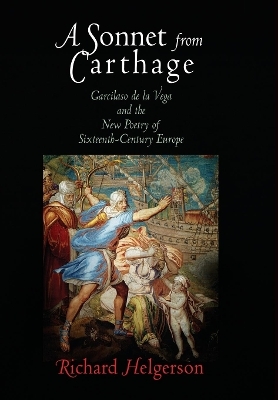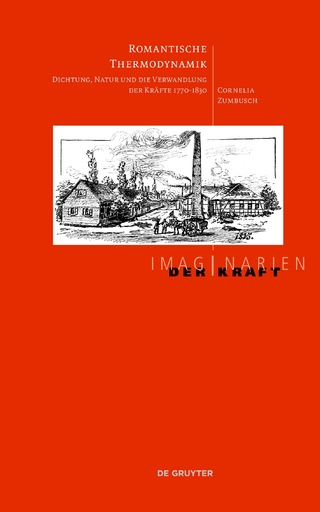
A Sonnet from Carthage
Garcilaso de la Vega and the New Poetry of Sixteenth-Century Europe
Seiten
2007
University of Pennsylvania Press (Verlag)
978-0-8122-4004-7 (ISBN)
University of Pennsylvania Press (Verlag)
978-0-8122-4004-7 (ISBN)
In 1492, the Spanish humanist Antonio de Nebrija proclaimed that "language has always been the companion of empire." Taking as his touchstone a suggestive sonnet that Garcilaso de la Vega wrote in 1535, this work examines how the companionship of language and empire played itself out more generally in the "new poetry" of 16th-century Europe.
In 1492 the Spanish humanist Antonio de Nebrija proclaimed that "language has always been the companion of empire." Taking as his touchstone a wonderfully suggestive sonnet that Garcilaso de la Vega wrote in 1535 from the neighborhood of ruined Carthage in North Africa, Richard Helgerson examines how the companionship of language and empire played itself out more generally in the "new poetry" of sixteenth-century Europe. Along with his friend Juan Boscán, Garcilaso was one of the great pioneers of that poetry, radically reforming Spanish verse in imitation of modern Italian and ancient Roman models. As the century progressed, similar projects were undertaken in France by Ronsard and du Bellay, in Portugal by Camões, and in England by Sidney and Spenser. And wherever the new poetry emerged, it was prompted by a sense that imperial ambition—the quest to be in the present what Rome had been in the past—required a vernacular poetry comparable to the poetry of Rome.
But, as Helgerson shows, the new poetry had other commitments than to empire. Though imperial ambition looms large in Garcilaso's sonnet and others, by the end of the poem Garcilaso identifies not with Rome but with the Carthaginian queen Dido, one of empire's legendary victims. And with this startling shift, which has its counterpart in poems from all over Europe, comes one of the most important departures the poem makes from its apparent imperial agenda.
Addressing these rival concerns as they arise in a single sonnet, Richard Helgerson provides a masterful and multifaceted image of one of the most vital episodes in European literary history.
In 1492 the Spanish humanist Antonio de Nebrija proclaimed that "language has always been the companion of empire." Taking as his touchstone a wonderfully suggestive sonnet that Garcilaso de la Vega wrote in 1535 from the neighborhood of ruined Carthage in North Africa, Richard Helgerson examines how the companionship of language and empire played itself out more generally in the "new poetry" of sixteenth-century Europe. Along with his friend Juan Boscán, Garcilaso was one of the great pioneers of that poetry, radically reforming Spanish verse in imitation of modern Italian and ancient Roman models. As the century progressed, similar projects were undertaken in France by Ronsard and du Bellay, in Portugal by Camões, and in England by Sidney and Spenser. And wherever the new poetry emerged, it was prompted by a sense that imperial ambition—the quest to be in the present what Rome had been in the past—required a vernacular poetry comparable to the poetry of Rome.
But, as Helgerson shows, the new poetry had other commitments than to empire. Though imperial ambition looms large in Garcilaso's sonnet and others, by the end of the poem Garcilaso identifies not with Rome but with the Carthaginian queen Dido, one of empire's legendary victims. And with this startling shift, which has its counterpart in poems from all over Europe, comes one of the most important departures the poem makes from its apparent imperial agenda.
Addressing these rival concerns as they arise in a single sonnet, Richard Helgerson provides a masterful and multifaceted image of one of the most vital episodes in European literary history.
Richard Helgerson is Professor of English at the University of California, Santa Barbara. He is the author of many books, including Forms of Nationhood: The Elizabethan Writing of England, winner of both the British Council Prize in the Humanities and the James Russell Lowell Prize of the Modern Language Association. His translation and edition of Joachim du Bellay is also published by the University of Pennsylvania Press.
| Erscheint lt. Verlag | 30.4.2007 |
|---|---|
| Verlagsort | Pennsylvania |
| Sprache | englisch |
| Maße | 152 x 229 mm |
| Themenwelt | Geisteswissenschaften ► Sprach- / Literaturwissenschaft ► Anglistik / Amerikanistik |
| Geisteswissenschaften ► Sprach- / Literaturwissenschaft ► Literaturwissenschaft | |
| ISBN-10 | 0-8122-4004-9 / 0812240049 |
| ISBN-13 | 978-0-8122-4004-7 / 9780812240047 |
| Zustand | Neuware |
| Haben Sie eine Frage zum Produkt? |
Mehr entdecken
aus dem Bereich
aus dem Bereich
Dichtung, Natur und die Verwandlung der Kräfte 1770-1830
Buch | Hardcover (2023)
De Gruyter (Verlag)
59,00 €


